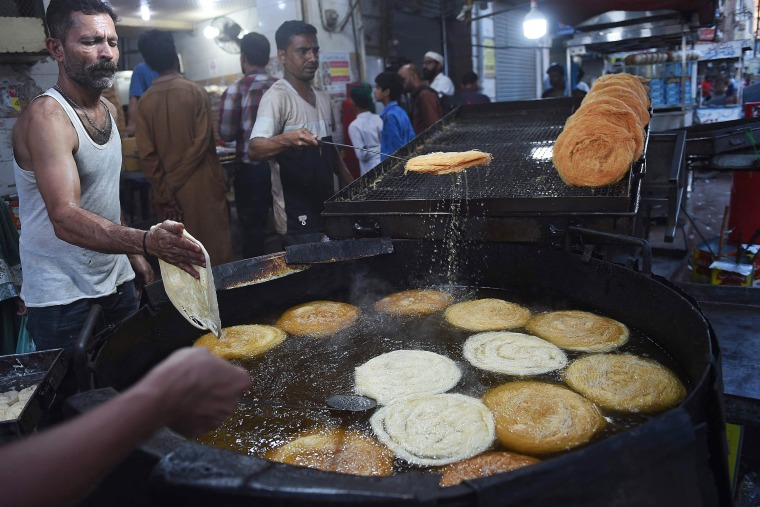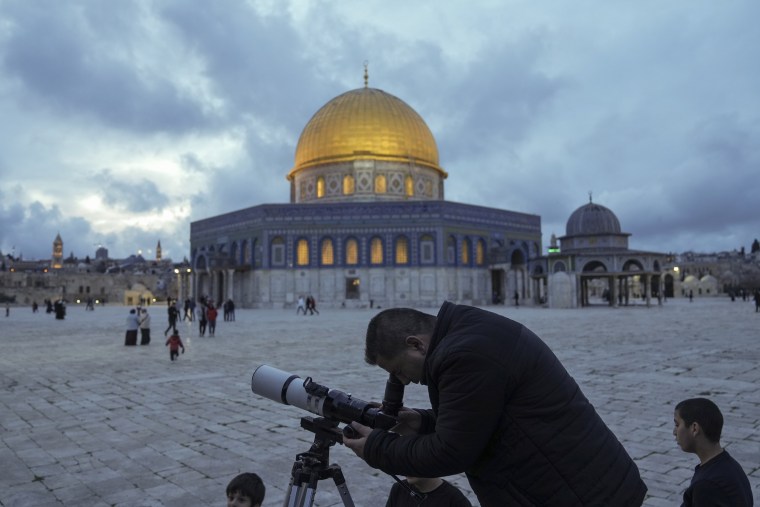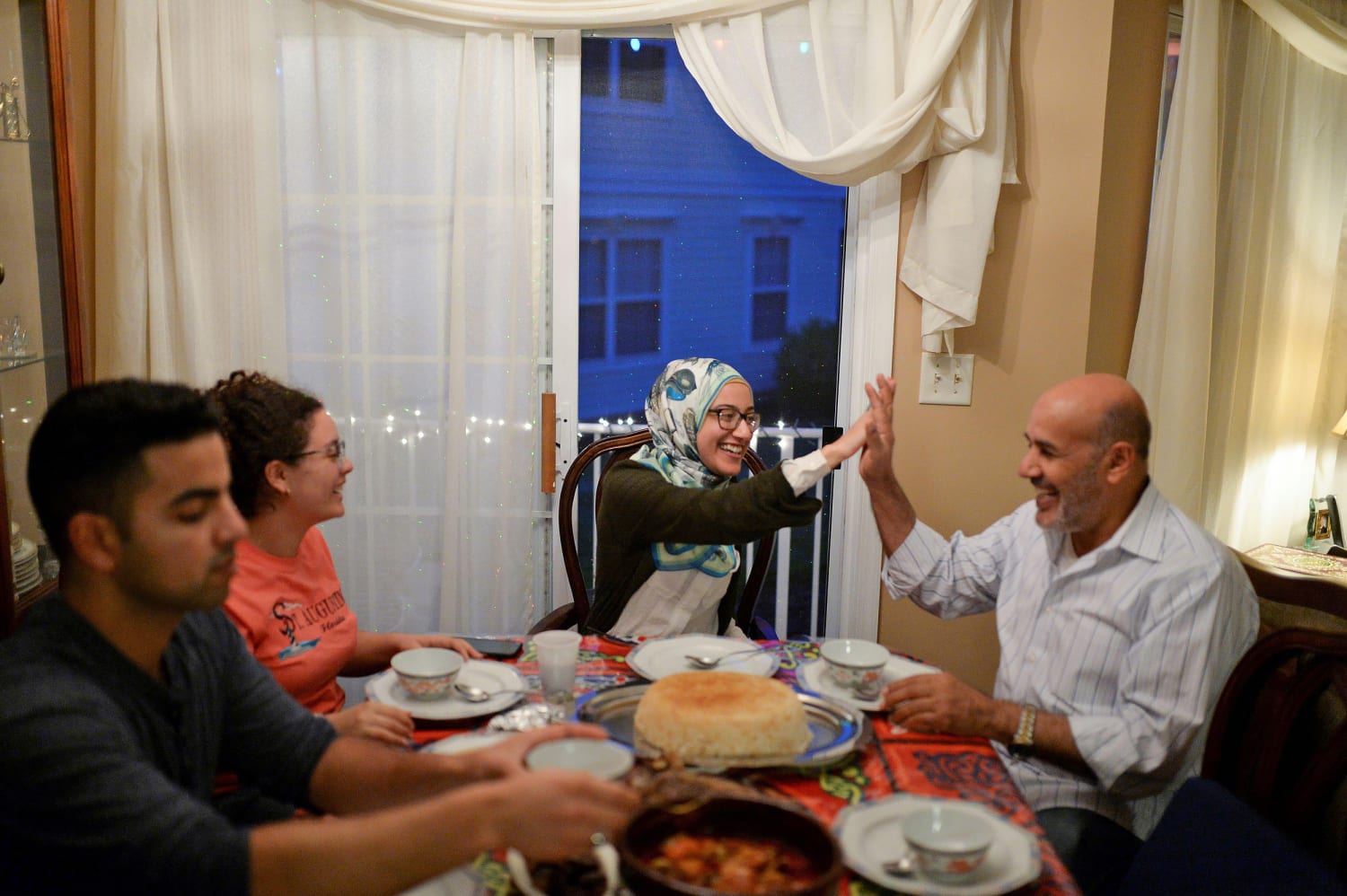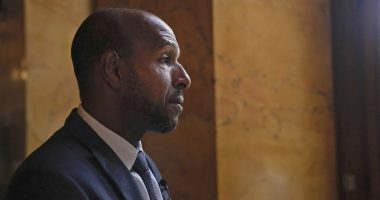Muslims don’t achieve this closeness to God and discipline just by giving up food and drink from sunrise to sunset, but also things like gossiping, swearing, lying, sexual activity and arguing. It’s also important to give zakat, or donate to the poor. The purpose is to make better choices and tune out the noise to make space for spirituality.
Those participating in the fast are encouraged to really look inward and ask themselves if they’re being the best person, friend, spouse, child or sibling they can be.
So, don’t be concerned for your Muslim peers and their lack of food and drink. Their energy levels might not be the same, but it’s all for a reason and it’s not meant to be easy. Think of it as a spiritual intermittent fast or detox.
No, not even water
“The most common question I get is, ‘Not even water?!’” said Mohamed Labib, 29.
And Labib is not alone — many Muslims say this is the most frequently asked question they get every year from their non-Muslim peers.
To settle it once and for all: No, not even water. No gum either. But your Muslim friends also want you to know that they can still brush their teeth and shower — maintaining good hygiene is an integral part of Islam.
It’s OK to eat and drink in front of Muslims observing the fast
“A lot of people refrain from eating and drinking in front of a fasting individual out of respect, but some of them take it to the next level,” said 30-year-old Tarek Halabi, who started fasting at 14 years old. “They’d be worried if they ate or drank, even if by mistake, as if either party would be harmed somehow.”
Fasting Muslims may appreciate the thoughtfulness, but one of the purposes of the fast is to strengthen discipline, especially in the face of any and all temptations.
This includes watching a colleague sip their coffee during a meeting, or seeing a friend bite into a doughnut — it’s all part of the package.

Some people are exempt from the fast
Don’t be alarmed if you see your friend who usually observes Ramadan every year not observing the fast for a few days — or at all.
“I feel like most non-Muslims don’t know that women must take a break when on their period,” said Maysa Mustafa, 24. “In general, fasting is for those that are able-bodied and healthy enough.”
Anyone who cannot partake in the fast in a healthy and safe way is exempt from it. This includes anyone who is ill, short-term or long-term, the elderly, children who haven’t reached puberty, anyone taking medication, pregnant, nursing, or even traveling.
“It’s not a form of punishment, it’s an opportunity for those who can perform it,” Mustafa said about the fast.
If you see a Muslim friend not participating in the fast, don’t call it out. They may have their reasons — but either way, spirituality is personal and they don’t owe you an explanation.
The start date of Ramadan is different every year, and can be different among the Muslim community as well
You’ve probably noticed that Ramadan doesn’t seem to happen on the same day each year, and that’s because it’s based on a couple of different things — the Islamic calendar, the sighting of the crescent moon both locally and globally, as well as calculations, according to the Islamic Center at New York University.
The Islamic calendar is lunar and dependent on the different phases of the moon. A new moon indicates the start of a new month, but Muslims will generally wait for the crescent moon to start the fast. The calendar is also 12 months long but only approximately 354 days, shorter than the standard Gregorian calendar — meaning Ramadan’s start date moves up about 11 days each year. This means Muslims will often find out Ramadan’s exact start date just a couple of days before it happens.
But beyond that, you may have also noticed that some of your Muslim friends start the fast on different days.

Some Muslims will rely more on technology and a rough calculation of when the crescent moon is due to be sighted while others will wait until they — or Islamic scholars — physically spot the crescent in their locale.
“Like any other religious community, Muslims are not a homogenous group, especially when it comes to deducing Islamic law, which is derived from two sources — the Quran and hadith, or teachings of Prophet Muhammad,” says Sheikh Faiyaz Jaffer of the Islamic Center at NYU. “There are different schools of thought and fiqh, or jurisprudence, within Islam.”
Regardless of which day they begin Ramadan, all Muslims end the fast with a major three-day holiday to celebrate called Eid-al-Fitr, or the festival of breaking the fast.
As important and joyous to Muslims as Christmas is to Christians, Eid-al-Fitr is traditionally celebrated with a morning congregational prayer on the first day, new clothes, time with family and friends, gifts of money for children and food — a whole lot of food.
Source: | This article originally belongs to Nbcnews.com










